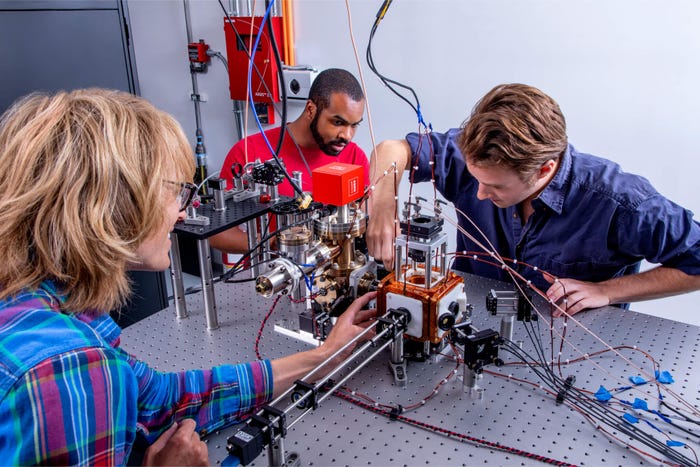
Connects decision-makers and solutions creators to what's next in quantum computing
China, Russia Test Quantum-Secured Satellite CommunicationChina, Russia Test Quantum-Secured Satellite Communication
Breakthrough could lead to an unhackable network for BRICS countries

Scientists from China and Russia report having successfully demonstrated the transmission of data encrypted using secure keys via the Mozi quantum satellite.
The “full cycle” transmission of two encoded images secured by quantum keys took place on Dec. 14 over a distance of 2,360 miles, between a ground station near Moscow and another near Urumqi in western China.
Current encryption keys risk being broken by quantum computers as they become more powerful over the next few years. One way of securing against this threat is to use quantum communication.
Quantum communication relies on the quantum property of superposition – qubits can be combinations of ones and zeros simultaneously. If a hacker tries to observe them in transit, the quantum state collapses, leaving evidence of interference, and the communication can be terminated.
Quantum key distribution (QKD) sees encrypted data exchanged between two parties along with a quantum key – a random string encoded and transmitted in a quantum state using qubits – making the data inaccessible to a third party.
However, ground-based transfer over optical fiber is limited to around 620 miles due to photon loss.
China launched Mozi, the world’s first quantum communication satellite, in August 2016, to overcome this. It enables long-distance quantum communication using space-to-ground laser communication. It is operated by the Chinese Academy of Sciences and forms part of the Quantum Experiments at Space Scale research project.
The demonstration could eventually lead to a quantum communication network for members of the BRICS intergovernmental organization. The BRICS member countries are Brazil, Russia, India, China, South Africa, Egypt, Ethiopia, Iran, Saudi Arabia and the United Arab Emirates.
Read more about:
AsiaAbout the Author
You May Also Like






